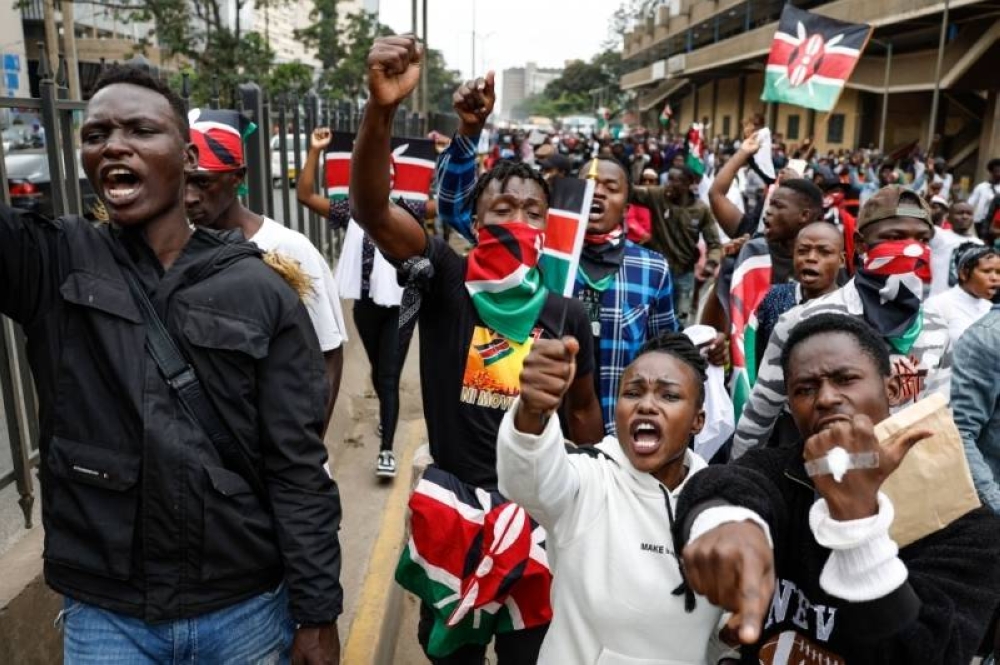
Kenya was bracing on Tuesday for fresh protest action against the government after anti-tax hike demonstrations last month descended into violence that left dozens of people dead.
Activists have stepped up their campaign against President William Ruto despite his announcement last week that he would not sign into law a controversial finance bill that triggered what he has branded "treasonous" protests.
The Kenya National Commission on Human Rights (KNCHR) said on Monday that 39 people had been killed and 361 injured during two weeks of demonstrations, and condemned the use of force against protesters as "excessive and disproportionate".
Largely peaceful rallies against a raft of tax increases -- led by mostly young Gen-Z Kenyans on social media -- turned into shocking scenes of deadly chaos on Tuesday last week when lawmakers passed the deeply unpopular legislation.
After the announcement of the vote, crowds ransacked the parliament complex in central Nairobi and it was partly set ablaze as police fired live bullets at protesters.
Ruto had said in a television interview on Sunday that 19 people had lost their lives, but defended his decision to call in the armed forces to tackle the unrest and insisted he did not have "blood on my hands".
It is the most serious crisis to confront the president since he took office in September 2022 following a deeply divisive election in a nation often considered a beacon of stability in a turbulent region.
Ruto's decision on Wednesday to reverse course and scrap the tax legislation has appeared not to have appeased his critics.
And despite him saying he was ready to talk with young Kenyans about their grievances, activists have vowed to pursue their protests, with leaflets posted on social media calling for more action this week.
"We will not relent until William Ruto unconditionally resigns," insisted one leaflet with the hashtag "RutoMustGo".
It declared both Tuesday and Thursday public holidays for an "OccupyEverywhere" movement and called on all Kenyans to stage sit-down protests on major roads in the country on those days.
- 'Unwarranted violence' -The state-funded KNCHR said Monday that in addition to the dead and injured in the previous protests, there had been 32 cases of "enforced or involuntary disappearances" and 627 arrests of protesters.
"The Commission continues to condemn in the strongest terms possible the unwarranted violence and force that was inflicted on protesters, medical personnel, lawyers, journalists and on safe spaces such as churches, medical emergency centres and ambulances," the KNCHR said.
It also said it "strongly condemns the violent and shocking acts of lawlessness that was exhibited by some of the protesters" including attacks on the parliament and other government buildings.
The body also highlighted what it said were "unacceptable" incidents of the "wanton destruction" of property linked to some politicians and threats and violence against them.
Kenya's cash-strapped government had said previously that the tax increases were necessary to fill its coffers and service a massive public debt of some 10 trillion shillings ($78 billion), or about 70 percent of GDP.
Ruto had already rolled back some tax measures after the protests began, prompting the treasury to warn of a gaping budget shortfall of 200 billion shillings ($1.6 billion).
In Sunday's interview, Ruto warned that the government would have to borrow another $7.7 billion because of the decision to drop the finance bill.
